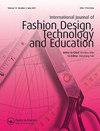时尚与设计产业对印尼社会经济发展的影响
IF 2.2
Q3 BUSINESS
International Journal of Fashion Design, Technology and Education
Pub Date : 2023-04-05
DOI:10.47604/ijfd.1906
引用次数: 1
摘要
目的:本研究旨在分析印尼时尚与设计产业对社会经济发展的影响。方法:本研究采用桌面方法。案头研究指的是二手数据或不需要实地调查就能收集到的数据。案头调查基本上涉及从现有资源中收集数据,因此,与实地调查相比,案头调查通常被认为是一种成本较低的技术,因为主要费用是行政人员的时间、电话费和通讯录。因此,这项研究依赖于已经发表的研究、报告和统计数据。这些二手数据很容易通过在线期刊和图书馆获得。研究发现:研究结果表明,酒店业最大的社会经济影响是增加就业、提高生活水平、增加州和地方政府的税收收入以及促进当地零售额的增长。酒店业为地方和区域经济创造了大量的直接和间接收入。对理论、实践和政策的独特贡献:发展理论和出口理论可以用来锚定未来在时尚和设计领域的研究。研究结果也将使其他利益相关者受益,例如政策制定者以及来自世界各地的研究人员和学者。该国时尚产业的高层管理人员也将利用研究结果来改善其所有活动和计划的发展绩效。研究报告建议,在时装和设计部门采取有效的社会保护发展政策将有助于提高其主要业务和活动的效率。本文章由计算机程序翻译,如有差异,请以英文原文为准。
Impact of the Fashion and Design Industry on Social Economic Development in Indonesia
Purpose: The study sought to analyze impact of the fashion and design industry on social economic development in Indonesia
Methodology: The study adopted a desktop methodology. Desk research refers to secondary data or that which can be collected without fieldwork. Desk research is basically involved in collecting data from existing resources hence it is often considered a low cost technique as compared to field research, as the main cost is involved in executive’s time, telephone charges and directories. Thus, the study relied on already published studies, reports and statistics. This secondary data was easily accessed through the online journals and library.
Findings: The results show that the greatest perceived socio-economic impacts of the hospitality sector are increased employment, improved living standards, greater tax revenues to State and local governments and growth in local retail sales. The hospitality industry generates substantial direct and indirect revenues for local and regional economies.
Unique Contribution to Theory, Practices and Policies: The Development theory and Export theory may be used to anchor future studies in the fashion and design sector. The study results will also benefit other stakeholders such as the policy makers as well as researchers and scholars from different parts of the world. The top management of fashion industries in the country will also use the study findings to improve development performance in all their activities and programs. The study recommends that the adoption of effective social protection development policies in the fashion and design sector will help to improve efficiency in their major operations and activities.
求助全文
通过发布文献求助,成功后即可免费获取论文全文。
去求助
来源期刊

International Journal of Fashion Design, Technology and Education
Arts and Humanities-Visual Arts and Performing Arts
CiteScore
3.10
自引率
0.00%
发文量
36
 求助内容:
求助内容: 应助结果提醒方式:
应助结果提醒方式:


